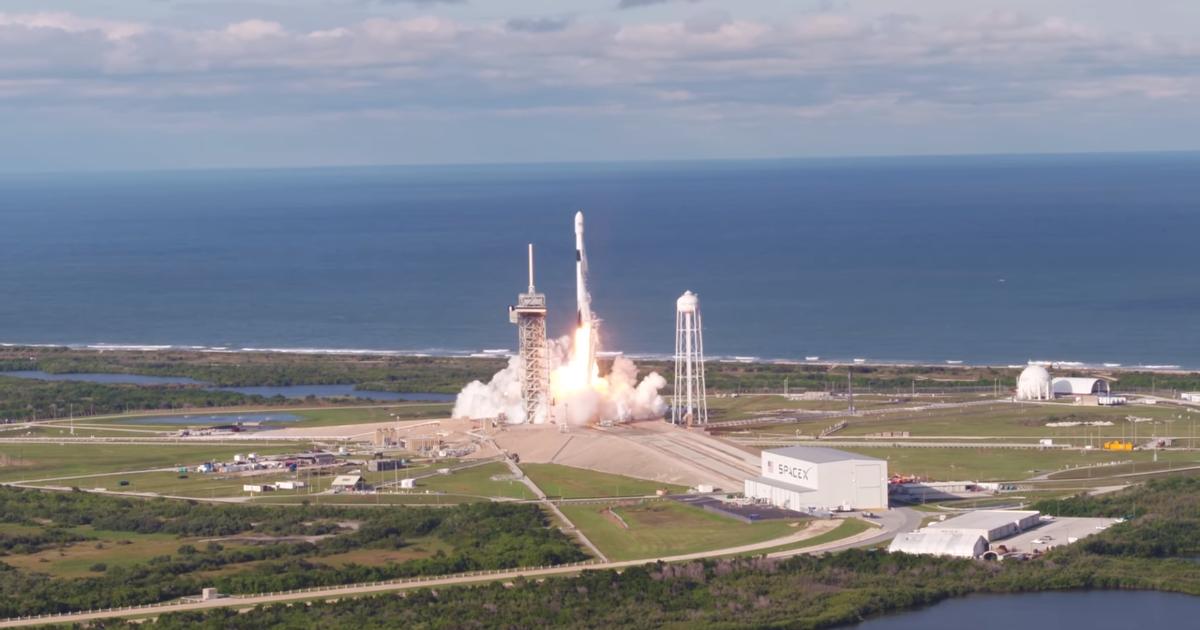

SpaceX, Christianity, and a Worldview Big Enough for the Stars
06/4/20
John Stonestreet Shane Morris

On Saturday, the successful launch of SpaceX’s Falcon 9 rocket and Dragon vehicle marked the first manned mission to space from U.S. soil in nearly a decade. NASA astronauts Doug Hurley and Bob Behnken, who ascended from the same launchpad as the Apollo missions and the space shuttle, are now aboard the International Space Station.
Only this time, in an amazing “giant leap” of technology, the rocket that carried them into orbit returned and landed itself aboard a ship to be reused. All of this was, for the first time in manned space flight history, carried out by SpaceX, the private company founded by billionaire Elon Musk.
SpaceX’s stated goal is to make off-world travel more affordable, but Musk has deeper, more science-fiction-like ambitions, including seeding the human species on other planets. Back in 2008, he wrote in Esquire:
An asteroid or a supervolcano could certainly destroy [humanity], but we also face risks the dinosaurs never saw: An engineered virus, nuclear war, inadvertent creation of a micro black hole, or some as-yet-unknown technology could spell the end of us. Sooner or later, we must expand life beyond our little blue mud ball–or go extinct.
Musk’s movie-like ambitions don’t end there. In addition to SpaceX and (of course) Tesla, he founded a company called Neuralink to “develop ultra-high bandwidth brain-machine interfaces to connect humans and computers.” At the press conference announcing the launch of Neuralink, Musk restated that in plain English. He wants to help humans “achieve a symbiosis with artificial intelligence,” creating technologies that would enable humans to “merge with AI.”
In other words, the worldview at work behind most of Musk’s projects is an atheistic transhumanism that seeks to control the evolutionary process toward the end of preserving and expanding human consciousness and capability.
Recognizing these worldview motivations does not, however, minimize the achievements of Musk or SpaceX. Sending Americans back to the stars in a private spacecraft propelled by a retrievable rocket is just downright cool, to say nothing of just how useful the technology could be.
At the same time, Christians should realize that the awe that overwhelms humans when watching man set foot on the moon or a robot land on Mars or astronauts boarding the space station is more than a mere feeling. Rather, it’s a testament to our unique status and role in creation, as well as our drive and capacity to imagine beyond the constraints of what is to what might be, and it’s a reminder that the universe is a place to be known, explored, and even subdued. Adherents to any worldview must recognize these observable realities about this universe, but Christianity can uniquely explain them.
No elephants or apes look to the stars and long to visit them, nor are they capable of trying. Humans do and are, because we’re created in the image of the One who set the stars in place to declare His glory and gave us wonder and the ability to know Him. An atheistic worldview, even with ambitions to transcend our bodies and settle other planets, simply cannot account for these desires.
That doesn’t stop those who hold this worldview from trying. Elon Musk, for example, sounds eerily similar to atheist space-farer Dr. Weston from C. S. Lewis’ “Space Trilogy.” In civilized man, says Weston, life has reached its “highest form,” and now “presses forward to that interplanetary leap” which will place us “forever beyond the reach of death.”
Though anyone who knows Dr. Weston’s eventual fate will shudder, similar ideas often drive this new era of space travel. The opportunity for Christians is to, as my friend Greg Koukl often says, “put a pebble in their shoe” by asking why. Why is human civilization worth preserving and spreading? Why do we long to visit other planets? Why do we treat death like an enemy to be overcome?
Not only do these questions lack answers if we are no different from the elephant or ape, there’s really no explanation for why we would be asking them in the first place. If we are different from the animals, however, if we were made to know the universe and the God behind it, then our sense of awe and our drive to return to space makes a world of sense.
Topics
C.S. Lewis
Christian Worldview
Culture
Elon Musk
Human Dignity
Human Nature
Inspiration
Religion & Society
Science
Technology
Worldview
Resources:
Have a Follow-up Question?
Up
Next

Related Content

© Copyright 2020, All Rights Reserved.













